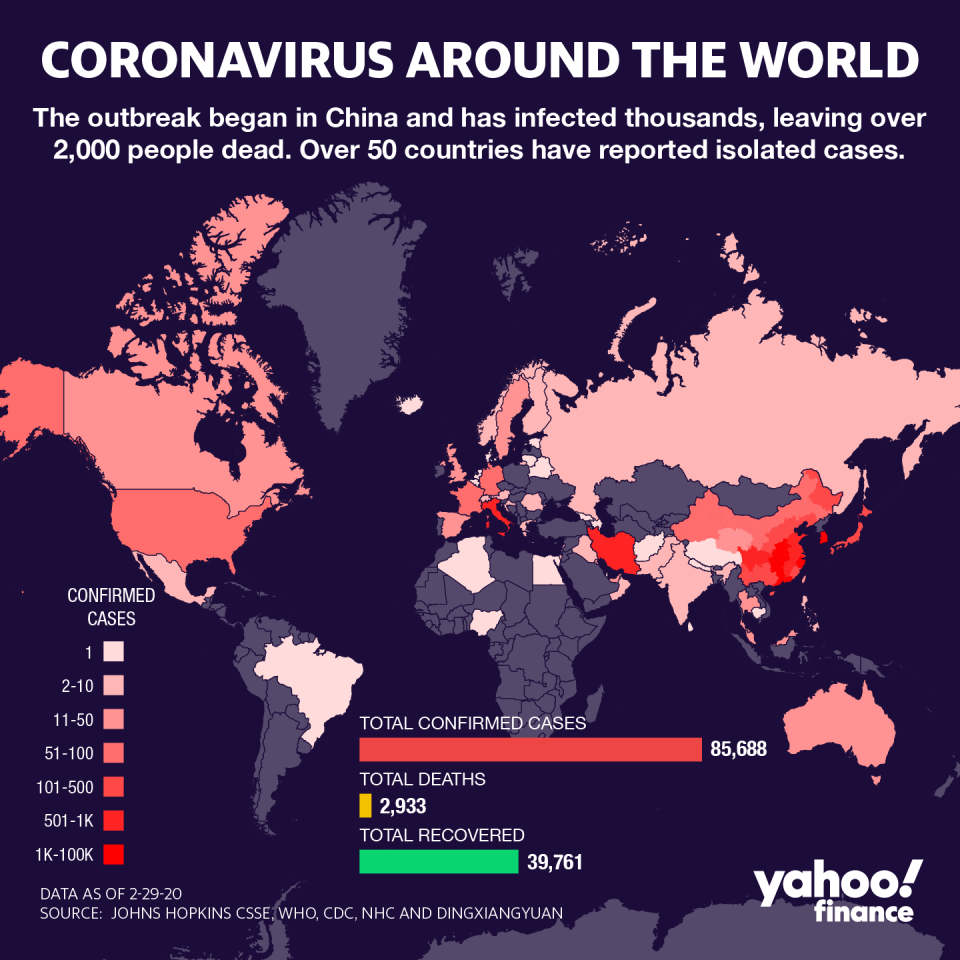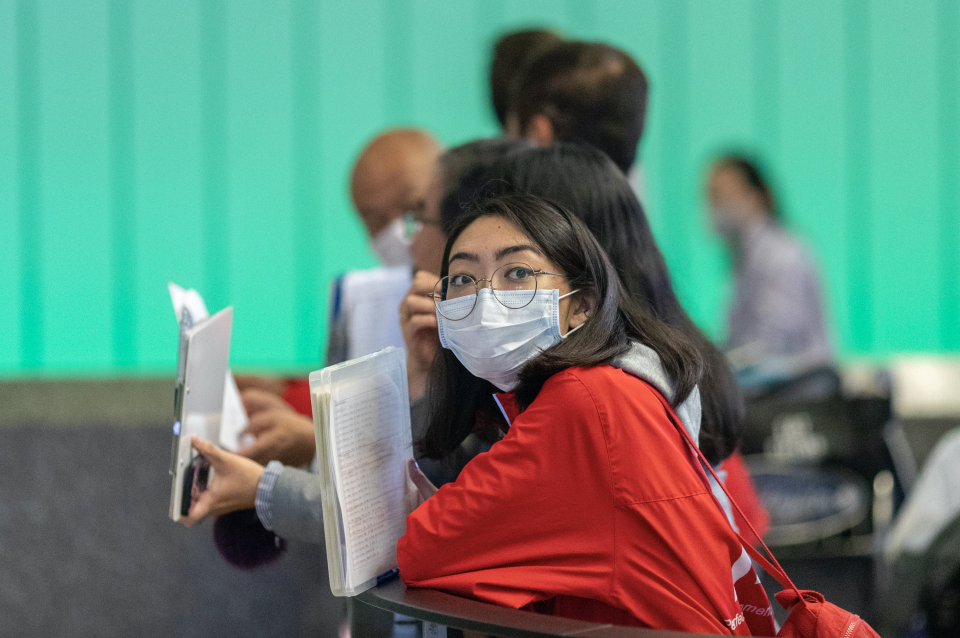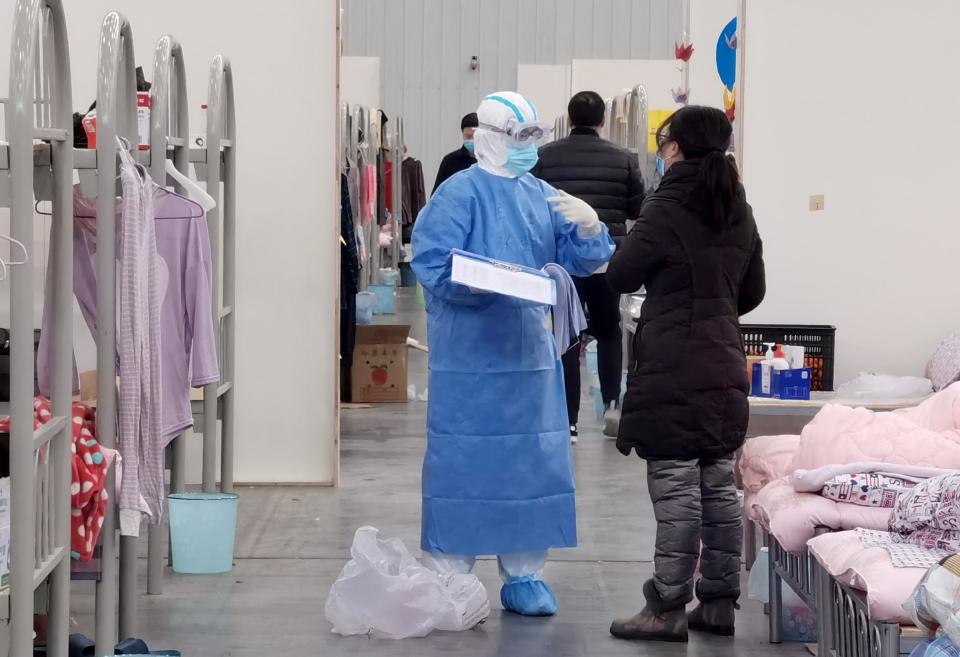Expert: There's a 'million-dollar question' surrounding coronavirus
With over 83,000 cases of the coronavirus, known as COVID-19 globally, the race is on to find a vaccine.
And given how contagious COVID-19 is, experts are wondering how exactly the virus will stick around.
“That’s the million dollar question,” Dr. Shira Doron, infectious disease physician and hospital epidemiologist at Tufts Medical Center, told Yahoo Finance’s On The Move. “Is this going to be a virus that predominates in winter? ... Or will this be a virus that isn’t affected by temperature?”
In other words, if the Northern Hemisphere sees a “reprieve” as seasons change and the weather warms, it raises the question of whether or not the Southern Hemisphere, as it chills, will see an uptick in the number of cases.
Dr. Doron said that it will be “interesting” to study that relationship to determine a cure.

‘Cold and flu and COVID-19 season’
Other experts have asserted that the virus may simply become a permanent part of illnesses that transpire as a result of cold weather, like the common cold or the flu.
Marc Lipsitch, a Harvard epidemiology professor, told The Atlantic that if the virus continues to spread and be as severe as it is now, “cold and flu season” could become “cold and flu and COVID-19 season.”
Other infectious disease experts echoed a similar sentiment.
"We know respiratory viruses are very seasonal, but not exclusively," William Schaffner, an infectious disease specialist at Vanderbilt University, told CNN. "One would hope that the gradual spring will help this virus recede. We can't be sure of that."
Regardless of whether the coronavirus is likely to be a winter phenomenon or not, "this is going to be with us for some time — it's endemic in human populations and not going to go away without a vaccine," Amesh Adalja, an infectious-disease expert at the Johns Hopkins Center for Health Security, told Business Insider.

Origins
The outbreak began in Wuhan, the capital of China’s central province of Hubei.
The virus strain was previously unknown and is speculated to have emerged late last year from illegally traded wildlife at a market in the city, according to Reuters. China has since issued a ban on wildlife trade and consumption until the situation calms down.
A very similar version of the coronavirus previously caused SARS (severe acute respiratory syndrome) almost a decade ago and MERS (Middle East respiratory syndrome) in 2012.
Stats from China indicate that around 2% of those infected with the new virus have died, but many of them were elderly or had prior medical conditions. The mortality rate for SARS was similar when it first began, and peaked at almost 10%.

‘Mask wearing is not recommended’
Dr. Doron recommended a few tips to keep the virus at bay, but wearing a face mask isn’t one of them.
For one, “mask wearing is not recommended by public health authorities,” she said. “The really important things to do are the things that you do during a regular flu season — washing your hands frequently ... keeping your hands away from your face ... staying away from people who are sick, and, certainly, if you're sick, staying away from other people, staying home, not going to work or school.”
Her other piece of advice: Start stocking up some on food items like pasta and soup.
—
Aarthi is a reporter for Yahoo Finance. She can be reached at aarthi@yahoofinance.com. Follow her on Twitter @aarthiswami.
Read more:
Biocontainment expert on coronavirus: There's no need for average people to panic yet
Coronavirus update: China's outbreak concerns ease as the rest of the world's grow more acute
Read the latest financial and business news from Yahoo Finance
Follow Yahoo Finance on Twitter, Facebook, Instagram, Flipboard, SmartNews, LinkedIn,YouTube, and reddit.

 Yahoo Movies
Yahoo Movies 

